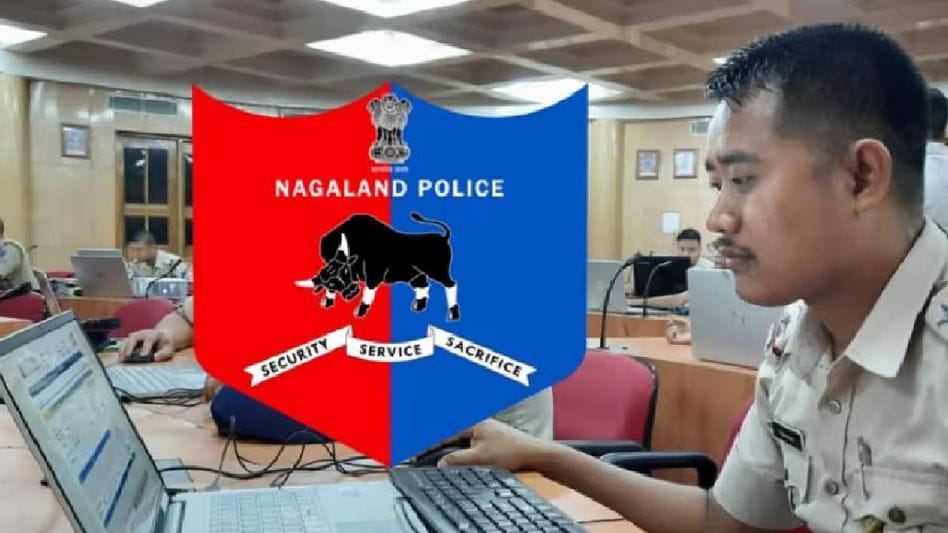Nagaland Police has recently issued a public advisory, warning citizens about the rising menace of second-hand car syndicates operating across the state. These syndicates are reportedly involved in fraudulent activities, including selling stolen or tampered vehicles, duping unsuspecting buyers, and causing significant financial and legal troubles for their victims.
The Nature of the Threat
According to the advisory, these car syndicates use various deceptive methods to lure potential buyers. The most common tactics include advertising cars at unrealistically low prices, forging vehicle registration documents, and concealing the actual history of the vehicle, such as accidents or thefts.
“Unsuspecting buyers often fall prey to these lucrative deals, only to find themselves entangled in legal issues later,” a senior police official explained. “Many of these vehicles are stolen from other states or have their chassis and engine numbers altered to evade detection.”
Recent Incidents
The police have highlighted several recent cases where buyers were duped by such syndicates. In one instance, a resident from Dimapur purchased a second-hand car at a price significantly lower than the market value. However, during routine vehicle inspection, it was discovered that the car had been reported stolen in a neighboring state. The buyer not only lost the vehicle but also faced legal complications for unknowingly purchasing stolen property.
In another case, a group of fraudsters was apprehended for selling cars with fake registration papers. The vehicles were found to have forged chassis numbers and incomplete insurance coverage, leaving the buyers with worthless assets and mounting liabilities.
Police Advisory for Buyers
Nagaland Police has urged the public to exercise caution while purchasing second-hand vehicles. The advisory includes several tips to help buyers avoid falling prey to these fraudulent schemes:
- Verify Documents: Ensure that the vehicle’s registration certificate (RC), insurance, pollution under control (PUC) certificate, and other necessary documents are genuine. Cross-check the details with the Regional Transport Office (RTO).
- Inspect the Vehicle: Conduct a thorough inspection of the vehicle, including its chassis and engine numbers, to confirm that they match the details in the registration papers.
- Purchase from Reputed Dealers: Avoid buying vehicles from unknown sellers or unauthorized dealers. Opt for established dealerships that offer transparency and accountability.
- Check the Vehicle History: Use online platforms or apps to check the vehicle’s history, including accident records, ownership details, and whether it has been reported stolen.
- Involve Authorities: If a deal appears suspicious, report it to the police or seek assistance from the RTO before proceeding with the purchase.
The Bigger Picture
The rise of second-hand car syndicates in Nagaland is part of a broader trend affecting several parts of India. Experts attribute the problem to the increasing demand for affordable vehicles, coupled with a lack of awareness among buyers. Fraudsters exploit these factors, targeting individuals who are either unaware of the verification processes or eager to close a deal quickly.
The issue also underscores the need for stricter regulations and better enforcement mechanisms to curb the activities of these syndicates. Enhanced coordination between state police departments and transport authorities can play a crucial role in tracking stolen vehicles and dismantling organized networks.
Police Action and Way Forward
Nagaland Police has intensified its efforts to tackle the growing threat. Task forces have been formed to investigate reported cases, and special drives are being conducted to create awareness among the public. Additionally, the police are collaborating with transport authorities and other state agencies to identify and track stolen vehicles.
“Public cooperation is essential in addressing this issue,” said a police spokesperson. “We urge citizens to report any suspicious activities related to the sale of second-hand vehicles. Together, we can create a safer environment for everyone.”
The warning from Nagaland Police serves as a timely reminder for citizens to remain vigilant while purchasing second-hand cars. By following the recommended precautions and staying informed, buyers can protect themselves from falling victim to fraudulent syndicates. At the same time, coordinated efforts by law enforcement agencies and the public can help dismantle these networks and safeguard the interests of honest citizens.

